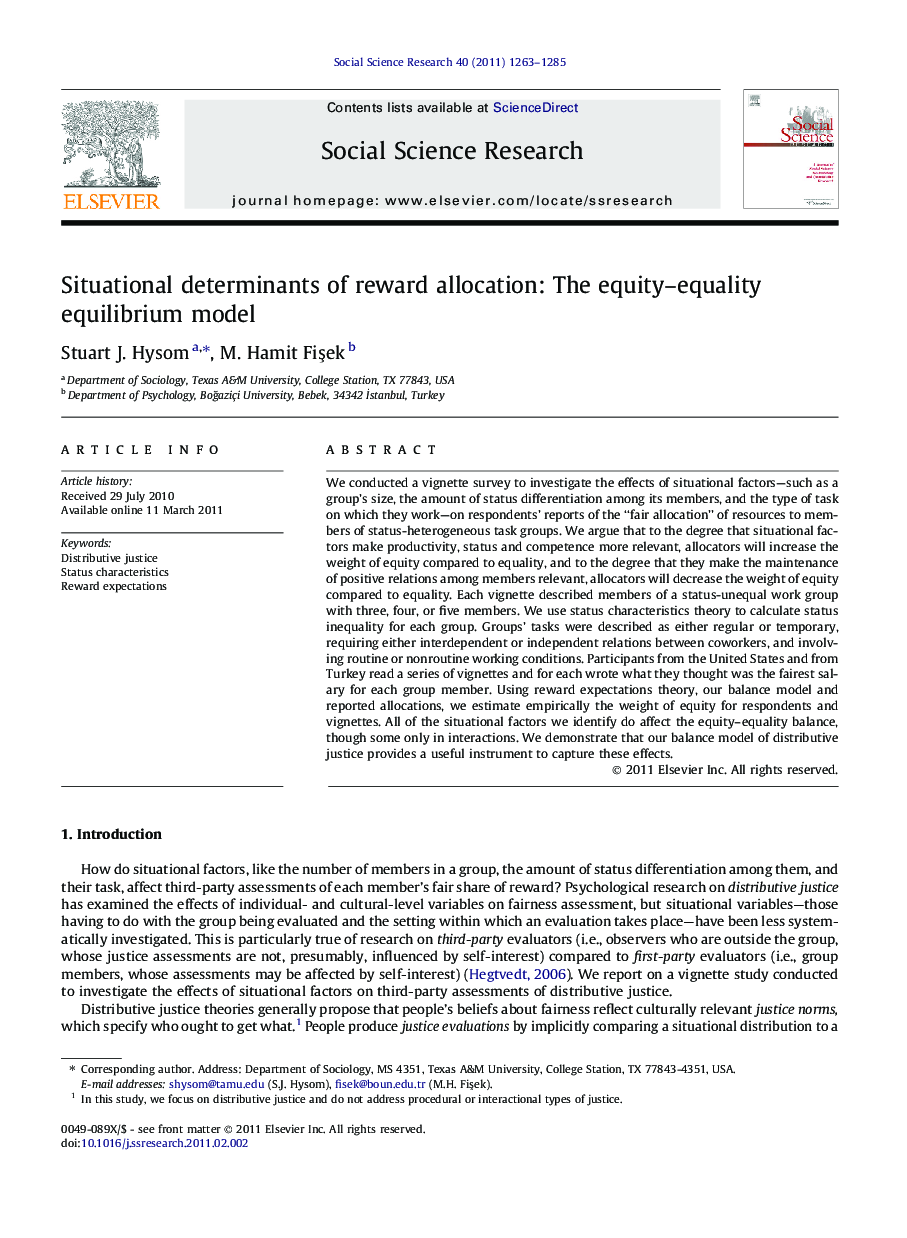| Article ID | Journal | Published Year | Pages | File Type |
|---|---|---|---|---|
| 956158 | Social Science Research | 2011 | 23 Pages |
We conducted a vignette survey to investigate the effects of situational factors—such as a group’s size, the amount of status differentiation among its members, and the type of task on which they work—on respondents’ reports of the “fair allocation” of resources to members of status-heterogeneous task groups. We argue that to the degree that situational factors make productivity, status and competence more relevant, allocators will increase the weight of equity compared to equality, and to the degree that they make the maintenance of positive relations among members relevant, allocators will decrease the weight of equity compared to equality. Each vignette described members of a status-unequal work group with three, four, or five members. We use status characteristics theory to calculate status inequality for each group. Groups’ tasks were described as either regular or temporary, requiring either interdependent or independent relations between coworkers, and involving routine or nonroutine working conditions. Participants from the United States and from Turkey read a series of vignettes and for each wrote what they thought was the fairest salary for each group member. Using reward expectations theory, our balance model and reported allocations, we estimate empirically the weight of equity for respondents and vignettes. All of the situational factors we identify do affect the equity–equality balance, though some only in interactions. We demonstrate that our balance model of distributive justice provides a useful instrument to capture these effects.
